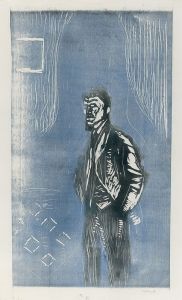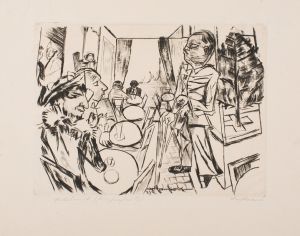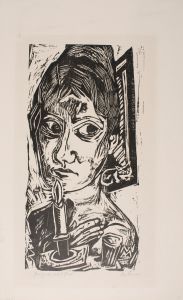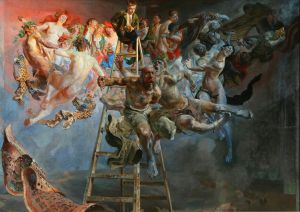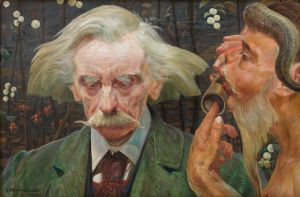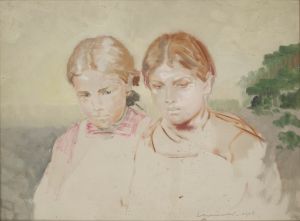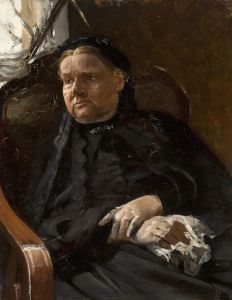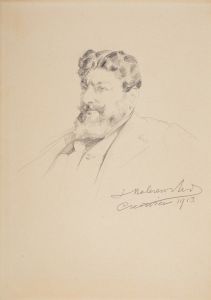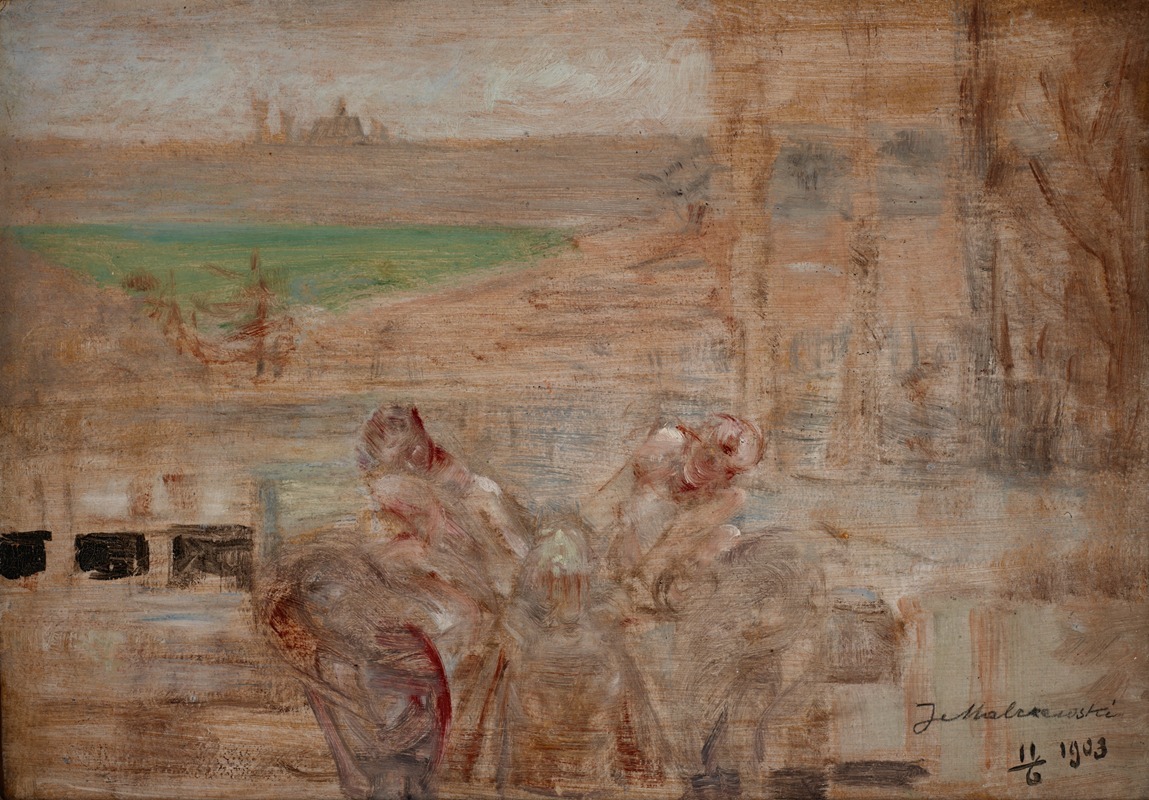
Sketch to ‘The Poisoned Well’
A hand-painted replica of Jacek Malczewski’s masterpiece Sketch to ‘The Poisoned Well’, meticulously crafted by professional artists to capture the true essence of the original. Each piece is created with museum-quality canvas and rare mineral pigments, carefully painted by experienced artists with delicate brushstrokes and rich, layered colors to perfectly recreate the texture of the original artwork. Unlike machine-printed reproductions, this hand-painted version brings the painting to life, infused with the artist’s emotions and skill in every stroke. Whether for personal collection or home decoration, it instantly elevates the artistic atmosphere of any space.
Jacek Malczewski, a prominent Polish painter, is renowned for his symbolic and allegorical works that often explore themes of Polish identity, mythology, and existential questions. One of his notable works is "Sketch to ‘The Poisoned Well’," which reflects his characteristic style and thematic concerns.
Malczewski was born in 1854 in Radom, Poland, and became a central figure in the Young Poland movement, which was a modernist period in Polish arts and literature. His education at the School of Fine Arts in Kraków and later in Paris at the École des Beaux-Arts significantly influenced his artistic development. Malczewski's works are often imbued with a deep sense of national identity and are rich in symbolism, frequently drawing on Polish folklore and history.
"Sketch to ‘The Poisoned Well’" is a preparatory work for a larger painting, a common practice for Malczewski, who often created sketches to explore composition, form, and thematic elements before executing the final piece. This sketch, like many of his works, likely delves into complex themes, possibly touching on issues of corruption, moral decay, or the consequences of human actions, as suggested by the title "The Poisoned Well."
Malczewski's use of symbolism is a hallmark of his style, and his works often feature allegorical figures, mythological references, and a vivid color palette. His paintings are known for their emotional depth and the ability to convey profound philosophical and existential questions. The sketch may include figures or elements that represent these themes, although specific details about the composition of "Sketch to ‘The Poisoned Well’" are not widely documented.
Throughout his career, Malczewski was deeply influenced by the socio-political context of Poland, which was partitioned and under foreign rule during much of his lifetime. His art often reflects a sense of longing for national independence and cultural identity. This context may inform the underlying themes of "The Poisoned Well," potentially serving as a metaphor for the societal and political challenges faced by Poland.
Malczewski's legacy is significant in Polish art history, and his works continue to be studied for their rich symbolism and contribution to Polish cultural identity. "Sketch to ‘The Poisoned Well’" is an example of his preparatory process and his commitment to exploring complex themes through art. While specific details about this sketch are limited, it remains an important part of understanding Malczewski's oeuvre and his approach to art-making.
In summary, Jacek Malczewski's "Sketch to ‘The Poisoned Well’" is a testament to his skill as a symbolist painter and his engagement with themes of identity, morality, and the human condition. His works remain influential in the study of Polish art and continue to captivate audiences with their depth and complexity.









